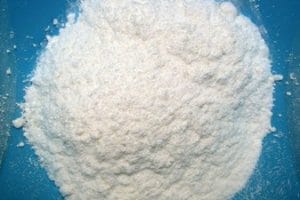Drug
Drug to fight tumors also fights the flu and possibly other viruses
Ever get a flu shot and still get the flu? If so, there’s new hope for flu-free winters in the years to come thanks to a new discovery by researchers who found that a drug called DMXAA, originally developed as anti-tumor agent, enhances the ability …
Drug developed by Hebrew U. and others holds promise for treatment of wounds
Jerusalem, February 7, 2011 — A low cost, nanometer-sized drug to treat chronic wounds, such as diabetic foot ulcers or burns, has been developed by a group of scientists from the Hebrew University of Jerusalem, Harvard Medical School and othe…
Drug reduces the increase in fear caused by previous traumatic experiences in mice
Mice previously exposed to traumatic situations demonstrate a more persistent memory of fear conditioning – acquired by associating an acoustic stimulus with an aversive stimulus – and lack the ability to inhibit this fear. This phenomenon is simila…
Evidence lacking for widespread use of costly antipsychotic drugs, says Stanford researcher
STANFORD, Calif. — Many prescriptions for the top-selling class of drugs, known as atypical antipsychotic medications, lack strong evidence that the drugs will actually help, a study by researchers at the Stanford University School of Medicine an…
Study says marijuana no gateway drug
Marijuana is not a “gateway” drug that predicts or eventually leads to substance abuse, suggests a 12-year University of Pittsburgh study.
Drug slows progression of moderate to severe Alzheimer's disease
A drug that quashes the activity of a key brain chemical is the first effective treatment for patients in the later stages of Alzheimer’s disease, according to the results of a large multi-center clinical study published in the April 3 issue of the New England Journal of Medicine. The drug, memantine, slows the mental and physical deterioration of patients with moderate to severe Alzheimer’s disease, according to Barry Reisberg, M.D., Professor of Psychiatry at NYU School of Medicine, who led the study. “These patients seem to be declining much less, about half as much as ordinarily expected, over a six-month period,” says Dr. Reisberg. “This medication will slow down the otherwise inexorable progress of this disease, and it is remarkably free of side effects. These are very impressive results. It looks like this drug really will have an impact on this disease,” he says.
Study finds addictive drugs all tweak same neurons in brain
Drug addicts may prefer some drugs over others, but their brains all have something in common. Whether it’s uppers or downers, addictive drugs tweak the same addiction-related neurons, causing them to become more sensitive, say researchers at Stanford University Medical Center. “What we have identified is a single change caused by drugs of abuse with different molecular mechanisms,” said researcher Robert Malenka.


